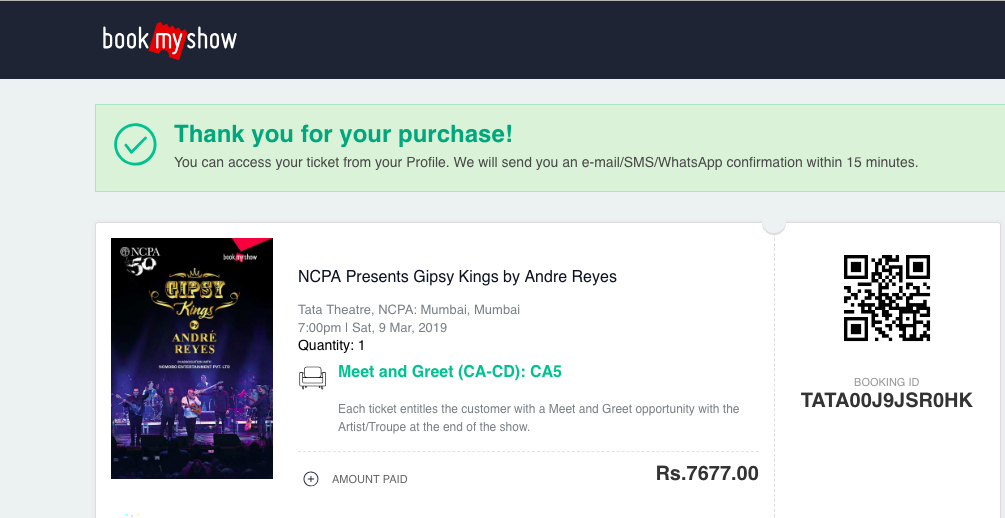 First time in India Gipsy Kings of Andre Reyes performed this month as part of Gipsy Unidos tour series at NCPA, Mumbai! It doesn't matter whether Felixé (my tabby tom kitty) and I've to sacrifice our dinner fish to cut the monthly budget because I'd to book the front row center seat! A total worth to be right in front of my darling guitarist and vocalist hero André Reyes. March 9th, 2019 evening for 90 minutes was the moment I re-lived being a teenager. It was in early 2000 when I was introduced to Gipsy Kings in a Salsa Club (now closed) in Jakarta, Indonesia. I used to frequent this club on weekends and got hooked to jazz and latin music - all new to me at that time. I'd bought Gipsy Kings CDs and every morning from my home in Jalan Papandayan in Bogor to my office at CIFOR I used to listen it. Till date, my morning music includes Gipsy Kings. A beautiful way to wake up.. makes my day :-) Berkeley to Bombay - Gipsy Kings inspiring all the way July 2004 USA. I was doing a short term course on Environmental Leadership at University of California, Berkeley. To my surprise Gipsy Kings were performing right before end of my course at Greek Theatre in Berkeley. I got a ticket - like a student managed to get a cheap back seat ticket - could hardly see them. Yet, just the idea of listening to them live was mind blowing. Next year, 2005, when I was in Montpellier and Arles, I craved to visit them - a home town of Gipsy Kings for four decades in the south of France. Their father, Jose Reyes, who had to leave Spain during the Spanish Civil War, kept the Flamenco style music in the heart of their gypsy style songs and music. Andre Reyes, one of the brothers, gave the name 'Gipsy Kings' to the band that originally came into existence around 1978 as Los Reyes. The interesting element of Gipsy Kings work is their ability to pull audiences from 10-90. No wonder the child seating next to me was just 12 years old; she came with her father, while the couple behind me were in their 70s. Its something in the rhythms that mesmerise the audience despite they being all male band. 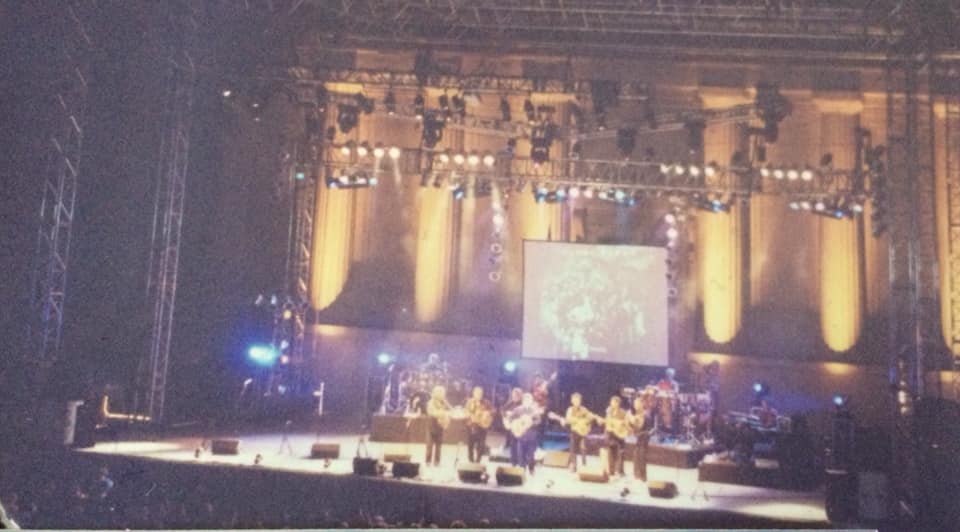 Greek Theatre, Berkeley 2004 Gipsy Kings live (Photo Purabi Bose) Greek Theatre, Berkeley 2004 Gipsy Kings live (Photo Purabi Bose) All Male Gipsy Kings without a Queen
Perhaps, I think that also could be the reason am attracted (as most female audience) is the charming, flamboyant, happy guys, tapping feet and playing guitar - all may sound macho - but these big boys have power to mellow down and balances with soft gentle sexy looking guys (if age is not a factor for you) dressed in black and of course the soothing music! André Reyes, who plays rhythm guitar and does the vocals is part of the band thats is literally his family - brothers and cousins. For me it was a dream come true - singing the songs each one of them from 'Bamboleo' the opening song to the almost wrap up song 'Volare' and then the cheery on the top 'Hotel California'. I hated the idea of seating and listening to this music, and am glad that the band encouraged audience to stand up and dance - if space permits. I guess my love for Gipsy Kings comes from the idea of combination of jazz, flamenco, and flirtatious aura that naturally evokes any lost sense of emotions. I'd a great time from being a back bencher in 2004 in Berkeley to getting those valuable eye contacts in 2019 in Bombay ;-) Love is in air.. Art is how we decorate space Music is how we decorate time.
0 Comments
Words Have Been Uttered Directed by Sunil Shanbag Written by Sunil Shanbag, Sapan Soren, Irawati Karnik @Prithvi on 31 Dec 2018 from 20-22hrs Today I finally got to watch first play directed by Sunil Shanbag at Prithvi - a late night show - before I retired into my room in Sun-n-Sand hotel after a hectic day. Multi linguistic, multi media, multi geographical ... multi faceted performance Two hours of power packed play - with 10 mins of break - takes the audience through a thought provoking journey with collection of narratives, poems, folk songs, and scientific dialogues. Sunil Shanbag, part of Tamasha theatre, introduces the play with a word that weaves and summarises the play - 'dissent'. He suggest dissenting, or having an opinion that is not mainstream idea, has been an integral part of society. A reason why so many social, political and cultural changes have emerged over so many generations. Dissent is an important part and a big reason for good democracy. The performance uses diverse audio-visual mediums such as powerpoint, live music and songs that would touch and move you. The long list of materials used in two hours (see photo below) includes a folk song Landays (see photo below) from Afghanistan sung by girls and women. Then, use of Bhakti poems translated in English, Hindi, humorous narration of Ismat Chughtai's narration of Lahore court case tried in early 1940s, and Galileo arguing with Copernicus .. the performance criss crossed across geographical areas, gender, communities and centuries with diverse language use - Punjabi, Afghani, Urdu, Hindi, English.. An excerpt from Marathi play Ambedkar viruddha Gandhi, Bob Dylan's The Times They are Changing, heartwarming satirical song/poem about the land eviction affecting adivasis/ tribals benefitting corporates, reading Dear Democracy and Jashn-e-Ghalib with emotions and beautiful voices of Priyanka Charan and Nachiket Devasthali were power packed reminder that dissent matters! Synopsis of Script - Sharing with the Audience At the end for the play rarely you'd see the director and artists distributing collection of performance - it was a surprisingly beautiful gesture to see dozens of photocopied book with some of the narratives from the play being distributed among audience. I'd upload five snapshots from the book (see above). Nothing can be as memorable as to see the hard work of the curators being shared with a wider audience! A highly recommended play - don't miss it and feel free to dissent but do 'listen' first. Creative Commons to the core and I love such work of artists :-) 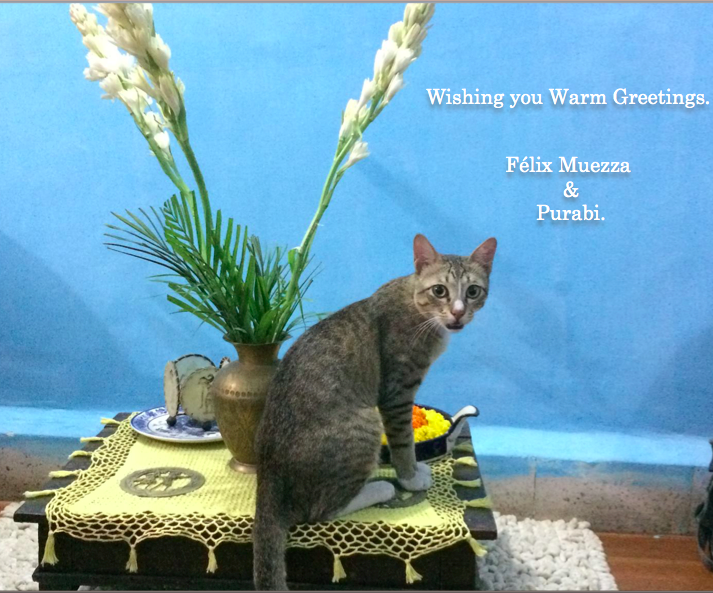 Felix (Narcos/ Netflix), 7m tabby kitten, last month he changed my status to human slave .. wishes meow to all :-) Felix (Narcos/ Netflix), 7m tabby kitten, last month he changed my status to human slave .. wishes meow to all :-) Next play in January 2019 Next week i.e. January 9th 2019 I'll be watching another play, titled Deewar and written by Prithviraj Kapoor, is directed by Sunil Shanbag, which was premiered at the 40th anniversary of Prithvi festival. I missed most of the events due to my film screening events in Scandinavia. The only play I could catch during the festival was Jam by Harkaat studio, which I've reviewed here in Culture Call. I won't be reviewing Deewar - you can read this review here via The Telegraph's review. Tuesday evening @Prithvi Theatre: Two Events Urdu Mehfil - 19:00 to 20:45 hr - a panel dialogue in English/Hindi/Hindustani/Urdu by Danish Husain's Hoshruba Repertory The Truth - 21:00 to 22:40 hr - a play in English by Naseeruddin Shah's Motley troupe Bombay à la nuit The play ended at 10:40 pm . All my attempts to get Ola/ Uber to reach D N Nagar Metro failed. It's 11 pm and me still standing on Juhu Tara road. There is no chance to get the last Karjat fast local. Finally at 11:15 pm I get a shared Ola to drop me at Ghatkopar station, but not before dropping the other shared passengers and picking up another lady from International airport. At Ghatkopar, I'm the only woman at the railway platform waiting for last Ambernath local expected at 12:28 am. It would take me another one hour to reach station .. then finding an auto-rickshaw to reach apartment. Of course, my brother remotely kept checking on me from another city via WhatsApp till I arrived home at 1:45 am. The Ola shared taxi driver - I'd kept him engaged in a discussion like any Sociologists. He was happily sharing all his frustrations about no outcome of Ola/Uber strike(s) and why lack of political empathy of Maharastra government's intervention is hurting taxi driver's problems. The Railway police (RPF) guard in his early twenties, on duty, had only me as his companion in the ladies compartment Ambernath local train. The young auto-rickshaw driver at the railway station immediately recognised me - the lady who occasionally arrives late night and gives him an extra tip - a dual rarity in a place like Ambernath. Three hours travel from Juhu to reach apartment to cuddle with Felixé Muezza, the kitten. All in all, six hours of to & fro travel for 180 min event worth it! I'd used travel time to write my quick n dirty reflection of a lovely Tuesday evening. THE TRUTH In 2017 I'd watched Motley troupe's play 'The Father' at NCPA Experimental. I can watch it again and again if Naseeruddin Shah remains the main protagonist! Le Père (The Father in french) and La Vérité (The Truth) is penned by Florian Zeller. Florian is one of France's contemporary playwrights and has also written a novel - La Fascination du Pire (The fascination of Evil) which was selected for Goulimard and created nice controversy. My French course teacher in Montepellier had asked to read this book in 2005. I have not yet read it.. Anyways, coming back to Florian Zeller the magic he creates in his playwright I think directly reflects in the success of plays. The Father brings out amazingly the world of dementia and Naseeruddin Shah did an amazing work as André, the protagonist just like his fantastic co-partner Ratna Pathak Shah played the role of his daughter. The Truth, keeps audience confounding through out 90 min performance. Once again both Naseeruddin Shah and Ratna Pathak Shah along with Shruti Vyas and Gaurav Sharma holds audience's breath spinning out emotions. I am unable to place this play into one water-tight genre - its not entirely comedy - it smoothly bring out the nuances of lies through the different meanings and contexts of what is truth and for whom. In brief, how comfortable are we with truths and human instinct to get angry with truths - this and more gets untangled in this play. The script's magic has been wonderfully turned into a beautiful performance with production design. The single set becomes diverse locales with constant change of sets and props without any glitches... credit goes to the amazing background team for creating a beautiful ambience taking audience through imaginations and into the world of protagonists. A must watch play - highly recommended. URDU MEHFIL (check out more detail about Urdu Mehfil in my November 2018 blog)
As I'd mentioned in earlier blog my knowledge of Urdu literature is next to zero. Therefore, Urdu Mehfil is an excellent place for a novice like me to fill up that gap nicely. Today's 90 mins of mehfil was the best I could've asked. Each of the panelists - Jameed Gulrays and Danish Husain, and the Urdu scholar Lakshman Sapre nicely moderated this event on satire and humour in Urdu literature. Jameed Gulrays shared the nice trajectory of how satire and humour has been introduced in Urdu literature and read out interesting pieces from Urdu poets and playwrights. Lakshman Sapre ensured that the discussion takes the shape moving between what we understand as satire and humour and its take by Urdu as a language. Danish Husain kept the humour level high and shared interesting analysis of how the term satire and humour emerges and the way famous Urdu literature scholars use humour - i.e. done by breaking a pattern of rhythmic the thinking of audience by taking them as a surprise. He narrated few dialogues of Ibn-e-Insha's play that he had adapted, directed and played 'Urdu ki akahri kitab '. Although I've seen his play but soon realised that hearing the dialogues again - I'd missed so much of the context. Another Urdu reading by Danish that touched me was Manto's essay/ take on Ashok Kumar's directorial film Aath Din (Eight days) - humour embedded in Manto's writing was so hilarious to hear. I really wish this mehfil was video and audio recorded - such a superb event that you wish to re-look and hear it again. This would be my suggestion for future events - if not streaming live at least video recording and uploading in social media would help not only to document such wonderful event(s) which other wise is inaccessible to many, but also create a better understanding of what to expect in Urdu Mehfil's monthly (second Tuesday) event. The next Urdu Mehfil i.e. Tuesday, 8th January, 2019, if I grasped correctly, will be dedicated to Fahmida Riaz (1946-2018). For those who don't her, just like I didn't knew about her.... she is regarded as a feminist progressive writer - a poet, fiction writer, but also brought new standards in Urdu literature movement. My next Culture Call picks for this month are: a) Films - 16mm Film Festival weekend - 15 and 16 December at Harkat Studio b) Dance - Madhavi Mudgal and Vaibhav Arekar - 16 December NCPA I've to drop out because I'm going for above 16 mm festival. Interested? Do get the ticket from me for free! c) Dance - Mallika Sarabhai and Geeta Chandran - 21 December at NCPA d) Play - Words have been uttered by Tamaasha Theatre - 31 December at Prithvi Theatre 2 reviews:'Tracing the Era of Urdu Theatre' by Danish Husain, & 'A Farming Story' by Faezeh Jalali11/13/2018 November 13, 2018 TUESDAY: After solo trekking for a week in Agonda and then travelling 14 hours in an overnight bus to reach Ambernath late afternoon with a nice back ache....... I'd little physical energy to pack my evening to travel again to and fro four hours all the way to Prithvi Theatre, Juhu. How could I've missed two back to back events! Another excitement was in sharing some of my favourite Mumbai artists with my nephew, Savyasachi Anju Prabir, who is currently in town on holidays from his Masters degree on Visual Anthropology, Media and Documentaries course in Munster, Germany. Here is a quick review of the two events from my Culture Call lens. EVENT # 1 Tracing The Era of Hindustani/Urdu Theatre Shama Zaidi, Jameel Gulrays, and Salim Arif in a conversation with Danish Husain tracing the early days, and the principal architects of Hindustani-Urdu theatre with focus on Mumbai. The speakers were not formally introduced. That probably because they are well-known personalities in theatre. Danish Husain of the Hoshruba Repertory began the Urdu Mehfil conversation by first giving the floor to Shama Zaidi - an eminent journalist, theatre and film personality. To summarise, Shama Zaidi emphasised on how Urdu theatre's origin has been influenced by Sanskrit theatre - and in turn influenced modern Indian theatre including in various other countries. Salim Arif gave a better perspective to audience about how Parsi companies found the commercial interest in Urdu language although adopted the architectural set up of the theatre from the West. Interestingly, the Hindustani-Urdu theatre did not limit to Mumbai but travelled across the country through these companies. Jameel Gulrays detailed powerpoint presentation highlighted the influence of Agha Hashar Kashmiri in Urdu-Hindi theatre, in particular Yahudi ki Ladki published around 1915 and later was adopted in Bollywood film, while his first play, Aftab-e-Muhabbat, was published in around 1890s. For an novice like me, I liked his presentation. Danish Husain facilitated the event by highlighting the historical timeline since late 17th century - taking note of influence of trade, space, theatre companies among others - that shaped Urdu theatre in India. This is my first time at Mehfil@Prithvi. My knowledge about Urdu theatre history is next to zero. Its a shame that we'd to leave after an hour to grab a quick snack before the next show. Yet, during my one hour of attendance, I felt that Danish could've moderated the first two speakers' talk - to streamline their thoughts focussed on the topic. The last part of panel discussion and conclusion that I missed makes me curious to learn more about how Urdu-Hindustani theatre personalities have adapted during the British era and the changes that occurred since then... and its impact till now - in writing as well as in performance approach. Such a powerful talk one would expect to draw a huge crowd, but less than a dozen audience in the room makes me wonder whatever happened to Mumbai's interest in such cultural events. So, if you are reading this post do spread the word and join this event every second Tuesday of the months and guess what its in bilingual (English and Hindi) and open to all and for free! Urdu Mehfil is curated by Hoshruba Repertory under the aegis of Prithvi Theatre every second Tuesday of the Month from 7pm onwards at Prithvi House, Janki Kutir, Juhu, Mumbai. EVENT # 2
A Farming Story by Faezeh Jalali Jalali's two previous plays - 07/07/07 and Shikhandi - the story of in-betweens had mesmerised me (see my previous Culture Call posts to read its review). She created a tremendous expectations from her earlier hits. One hour 40 minutes play with a ten minute break, A Farming Story, is an English play written by Vineet Bhalla. A kind of fantasy story about the current state of affairs reflecting on human beings' struggle. As the synopsis reads: A small community of farming Hummals (human animals) is struggling to survive after environmental conditions have resulted in repeated crop failures. The villagers of this community are in debt to the Estate which owns all the land. Into this world arrive Hummal monkeys, fleeing from devastating forest fires. They hope to find refuge in the village. The villagers are deeply divided about this. When a mysterious disease destroys the community's livestock, the Estate blames the monkeys, who are then, imprisoned. What ensues is a fight not only for survival, but also beliefs of compassion, bravery and wisdom.Their world eerily reflects ours, with all-powerful corporations, environmental damage, genetically modified seeds, abject poverty and mass migrations to cities. Here's my take: the actors were fabulous. The use of props and stage is just relevant and beautiful. The hairstyle and vintage props couldn't have been more apt. The fundamental challenge I think is with the script. It looked more of a film script. The first 30 min of the play just dragged and it became a long introduction without music, satire and with too much of dialogues. Some elements were not essential.. for example, the fighting sequence absolutely didn't fit in the play. I was hoping to see the magic of Jalali. It failed, although not completely. Something is missing in this play... One of the female protagonists in a wheel chair brings out an underlying Jalali's signature - gender/women dimension. I didn't find any moment in the play to laugh - though some people in the audience were laughing... it made me wondered what was I missing! With my expertise in forest land tenure and gender expert, 'A Farming Story' sounds like a perfect fit for any International Development organisations' outreach message. In other words, there was too much moral of the story and theatrical dimension got lost in the process. As such I'd recommend you to go watch it for the sake of the social equity issues - combining migration, forest fire, GMO, community land rights etc - that this play raises. Yet, this is not a direct political theatre about staging a revolution. As for theatrical experience this play could've been fit in 45 min. The script is the main culprit. Otherwise, A Farming Story is a relatively nice play even though nothing extraordinary in the storyline. Both the events - UrduMehfil@Prithvi and A Farming Story - reminds me of how theatre in India lost its 'social activism' tag, which used to be prominent in 1970 and gradually disappearing by 2000. Do read this piece 'Staging a revolution: can theatre be an effective form of activism?'.. questioning how the arts effect social change. Post two back to back events in one evening it was nice to get an opportunity to reflect while we both hogged prawn gassi with appam at Mahesh Lunch home restaurant around 11:45 pm in Juhu! That's only possible in Bombay! This post is part of Culture Call www.purabibose.com SYNOPSIS
Harkat Studios presents their first very own play: JAM. Premier: @Prithvi Theatre, November 6, 2018. 60 mins; 19:00-20:00 hrs The play merges live-projection, sand art and storytelling in a way that never seen before. Bina and Surekha are college friends who haven’t met for years. Now they have met but are stuck in a car in a terrible traffic jam. For Surekha, this is an everyday situation. She drives, swears and is not above nudging a car that is refusing to give way. But is there more to her aggression? With no way out of the jam, they revisit their days back in Darjeeling and the treachery of their current lives. Matters take a sinister turn when Surekha scratches a bigger car. Was it deliberate? Why? In a headless turn of events, past and present merge, mirror and oppose each other. One decision can change your life forever, even if you believe you have forgotten - others remember… Written by Annie Zaidi; Directed by Shivani Tanksale Cast: Shivani Tanksale, Ishita Sharma, Ajitesh Gupta Animation + Live Design: Debjani Mukherjee; Sound: Ajitesh Gupta; Light: Amogh Phadke REVIEW I've a driving license but I don't drive. I'd tried my hands in Indonesia for a few months driving around in my Isuzu Panther. Once on my way all by myself from Bogor to Puncak I was stuck in a traffic jam for four hours. You don't know what traffic jam is until you hit the Bogor Puncak toll road on a weekend. In one of those downhill stretches I softly hit the bumper of the car in front of me. Indonesian couple in the car were accommodating and didn't bother about a small dent. However, it was a big dent to my interest to drive. Jam was a good enough reason for me to stop driving car from that day in 2003, and I was happy to driven around by my driver, Pak Jumhari. This play, Jam, nicely shows how I can relate with the protagonist, Bina, played by Ishita Sharma. Like her even I don't know any technical details or names of different parts of a car. I honestly don't know :-) Well, all the three on-stage actors including Shivani Tanksale and Ajitesh Gupta will make you believe you are in a traffic jam. A experience that comes to live thanks to amazing use of different media - sand-art animation, sound and lights - brilliant use of these in small doses keeps audience absolutely engaged for 60 minutes. I see Jam as a superb experimentation of bringing together different art forms to share a simple story to make you almost 'feel' the space with the protagonists. A beautiful script by Annie Zaidi about two college friends from Mumbai going back-and-forth between their past lives and relationships, and revealing their own current relationships with each other. The use of Bollywood songs through a radio and involving Ajitesh as Radio Jockey in the background brilliantly uses the emotions of the two women protagonists - Surekha, the scientist and Bina, the 'happy' housewife from Pune exploring the idea of completing Masters degree. You would truly enjoy this play - I'd highly recommend to watch it when you get a chance. Every time you are in traffic jam I bet this play will be a beautiful reminder! The 20th edition of Mumbai Academy of Moving Images (MAMI) International Film Festival was held from 25th October to 1st November, 2018 in Mumbai, India. October first two weeks I was busy screening my Landing Together Films promoting in various countries in Europe, USA and India. Interested to learn more about documentary films I'm producing and directing, do visit www.landingtogether.weebly.com (see pages Tour and Films). I was only able to attend from 28-31 October. The first time I attended MAMI was in year 2016. This year the registration fee was just INR 500 compared to 2016 when I'd paid INR 2000! For some films the queue was long compared to other films, therefore my pick of films is dependent on the key factor whether I woke up at 8 am to book online tickets or had to accept whatever films were leftover. Nevertheless, here are some of them, I categorised them in three ratings - Good (***), Very Good (****) Best (*****) Here are some of the films I managed to watch in four days, and my top two picks and review! GOOD ***Fahrenheit 11/9 (USA) ***Matangi/Maya/M.I.A (USA/UK) ***Colette (UK) ***The Wild Pear Tree (Turkey) ***The Image Book (France) ***Los Silencios (Columbia, Brazil) ***Samouni Road (Italy - Arabic, Hebrew) VERY GOOD ****Transit (Germany) ****Birds of Passage (Colombia) BEST *****Woman at War (Iceland) *****A Twelve-Year Night (Uruguay) 2018 Icelandic film 'Woman at War' touched me the most. Director: Benedikt Erlingsson To me, this film touched the most - you know why - because intelligently this film tackles global environmental issue with nice blend of gender role and a tit-bit of humor. Erlingson's film is Iceland's Best Foreign Academy Award nomination for good reasons. I am not a good film critic and not body could be for this film because it is hard to categorise this film into docudrama, suspense, social or environmental issue, women/feminist/gender, comedy, musical, or human rights or what?! Identical twin sisters - one choir teacher and another yoga guru, a Spanish-speaking tourist, traditionally attired Ukrainian country singers and three musicians, and a shepherd cousin. The film is not preaching but yet leaves behind so many beautiful thoughts with brilliant sound and music and cinematography. The electric company - Rio Tinto's land grabbing motives, local communities' naive approach towards environmental issues, the protagonist's love for nature, and government's false claims and using super modern technologies such as camera and drone to monitor 'traitors' damaging the electric fence sounds real for any countries, particularly in global tropics. Do watch this film if you get a chance. 2018 Uruguay's entry for the Best Foreign Academy Award film A Twelve-Year Night Director: Alvaro Brechner If you are from Latin America, you'd know the history of Uruguay's politics. This film nicely touches the human dimension of three men - who lived in total isolation for twelve years. La noche de 12 años is a powerful story will amazing direction from Brechner. The film shows how three men of MLN Tupamaros were captured and left in solitary confinement for twelve years because as one of the army chief says, "As we can't kill them, let's drive them crazy." One of the three went on to become President of Uruguay - Pepe Mujica. No, its not just the story, that makes this film successful. It is the way Brechner treated his protagonists that clearly shows violence as a secondary compared to human dimensions of film's character. Each one full of emotions, humane touch, and powerful dialogues. I highly recommend you to watch this film. Yes, I am a big fan of this World's best President ever, José Pepe Mujica, long before Facebook glorified his unique lifestyle - donating his salary or driving his own old car or living a modest life. However, do watch this film to see what a good film can do to get a standing ovation in Mumbai's MAMI festival (PVR ICON, Versova).. a truly powerful cinema recommended for you! Some of the films that I missed watching in this festival and look forward to catch it somewhere are 3 Faces (Iran) Border (Sweden) Roma (Mexico) Shoplifters (Japan) Born and raised in Maharashtra, I consider Marathi as my maternal language! It is true that I can read, speak, understand and even write Marathi better than Bangla language. When I was in primary municipal school, in the outskirts of Mumbai, my teacher along with my mother had decided that instead of Malayalam as the third language it will be Marathi. I'd not seen a single play in Marathi till date. My brother, Prabir Bose, himself an expert of Theatre for Development, suggested (rather pushed) me to watch this play at NCPA, Mumbai. I am glad to listen and accept his advice. This play is running for over 40 years making it older than me! I think the actors are all new (not the ones who played 40 years ago) and some of the dialogues has nicely been adapted to suit the current scenario of the country. Satish Alekar's Mahanirvan is more than a story about death man.. it takes the audience more in-depth to examine human society, relationships and our behaviour with 'rituals and traditions' and underlying politics. Let me call it as a musical play in two acts with two key protagonists - sutradhars - the dead man and his son. Satish Alekar beautifully uses typical Maharashtrian regional folk songs and music such as Abhang, Bhajan, and Kirtans through out the 120 minutes. The interval/break in the play sees the shift of 'sutradhar' from dead man to his son. Of 15 men in the play there is only one woman - the widow - and her role is nicely placed from being dependent, to vulnerable, and to some one with desire. Alekar direction has left no gap in depicting the chawl atmosphere, or brining sarcasm in our belief-systems - be it in the form of black crow that claims monopoly in traditional ritual systems of death .. questioning what is culturally acceptable or prescribed and followed/passed-on blindly. I must admit Nachiket Devasthali's acting got me floored. Each and every character is well-placed and audience is given a chance to understand the character - its relevance in the play/story. To me, the story is well executed and sometimes I found Marathi language was a bit too polished for me to understand, but that was only in a couple of dialogues. Overall, I would highly recommend to watch this play if you get a chance. Absolutely brilliant performance by the actors. The Hindu has published a detailed review of this play, which you can read it here
https://www.thehindu.com/entertainment/theatre/mahanirvan-revival-and-relevance-today/article23321806.ece |
Privacy Policy: We use Google Analytics to collect data to improve the Website. By using and accessing the website you are consenting to use of Google Analytics. All Rights Reserved.
ARchIvES
March 2019
CATEGORIES
All
Privacy Policy: This website uses Google Analytics to improve the Website. By using and accessing the website you are consenting to use of Google Analytics.
|
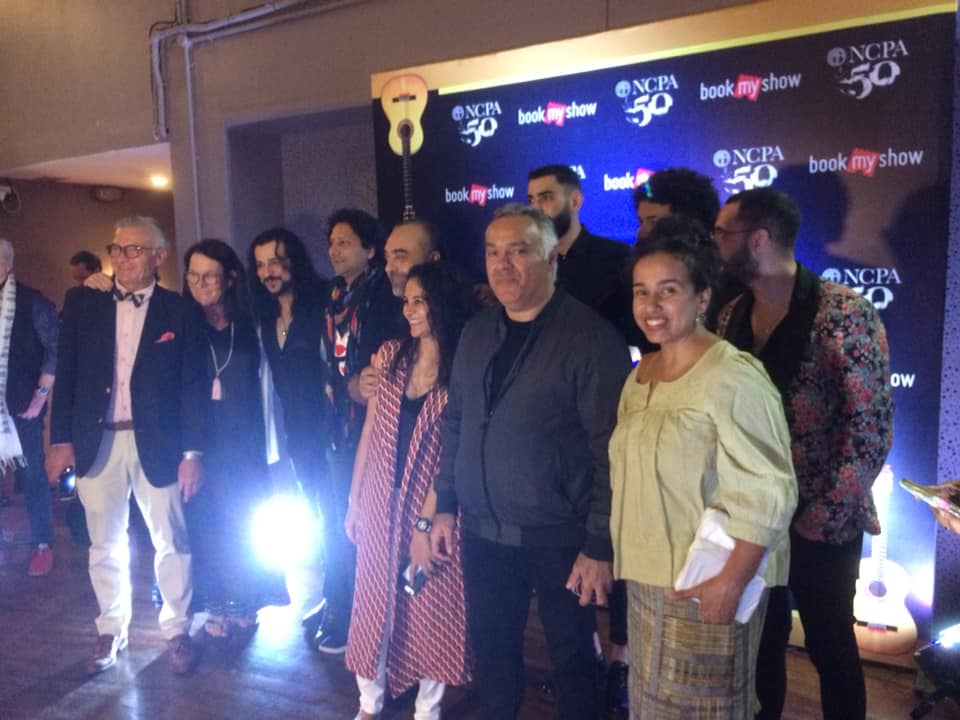
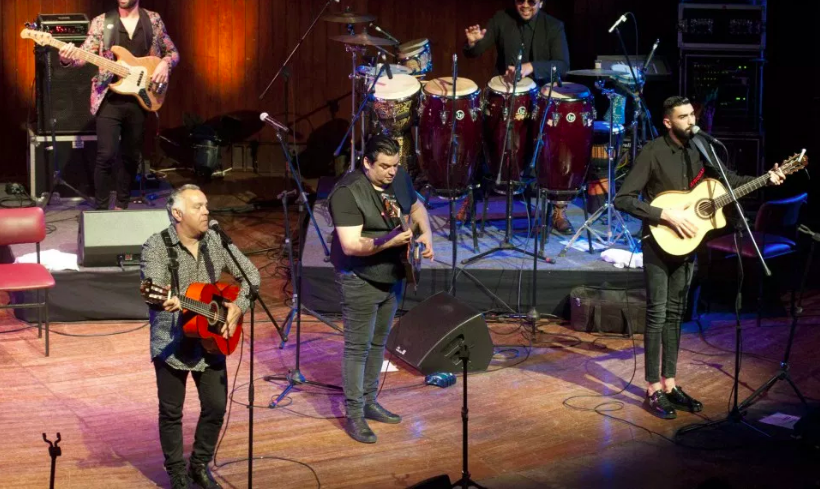

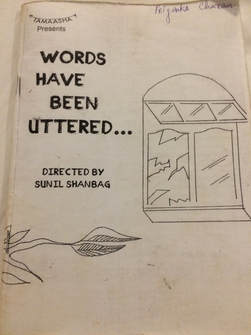
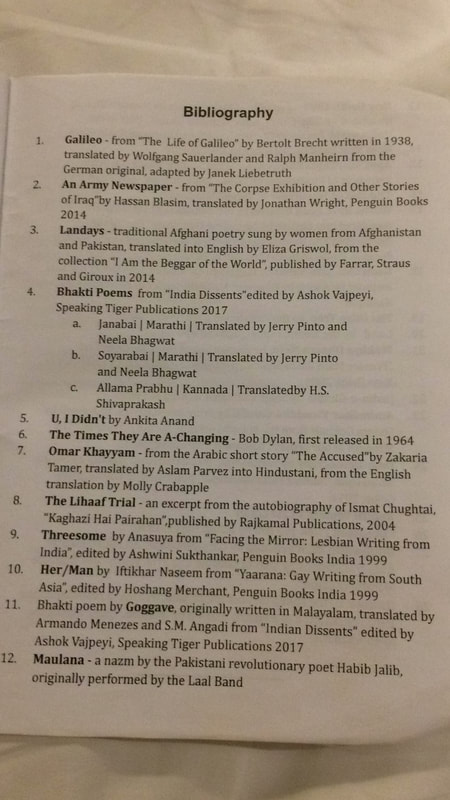
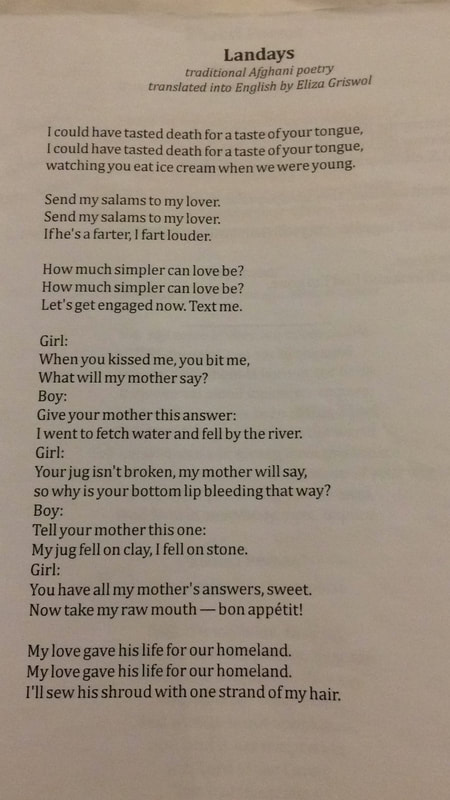
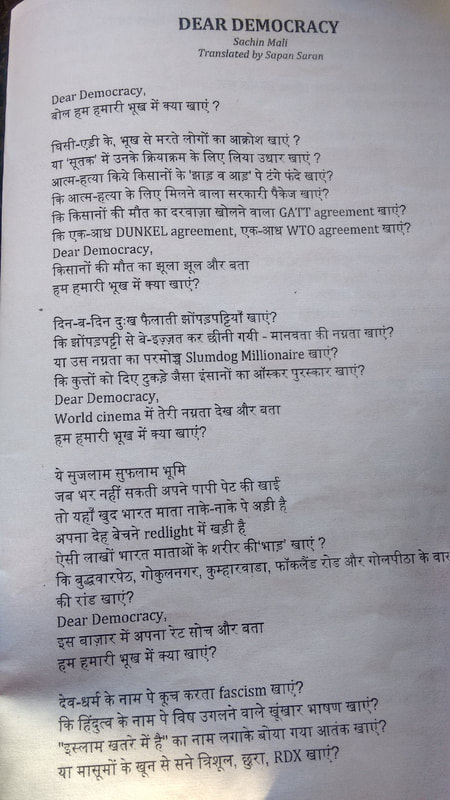
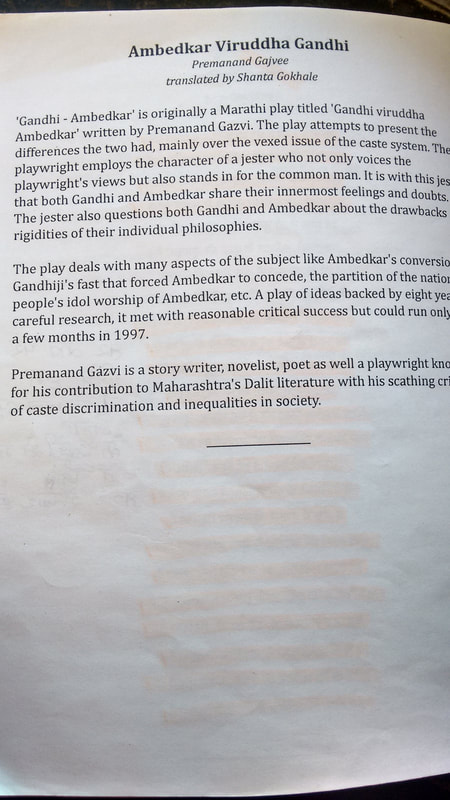
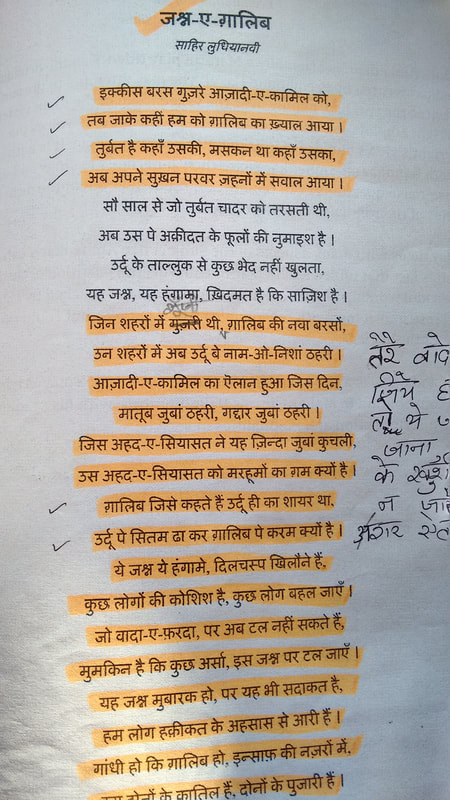
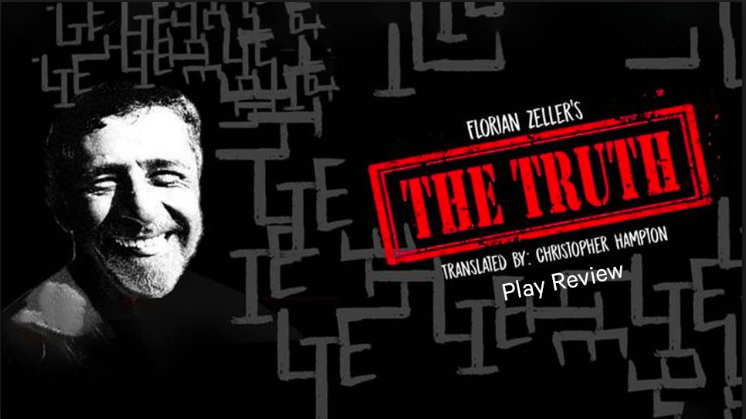
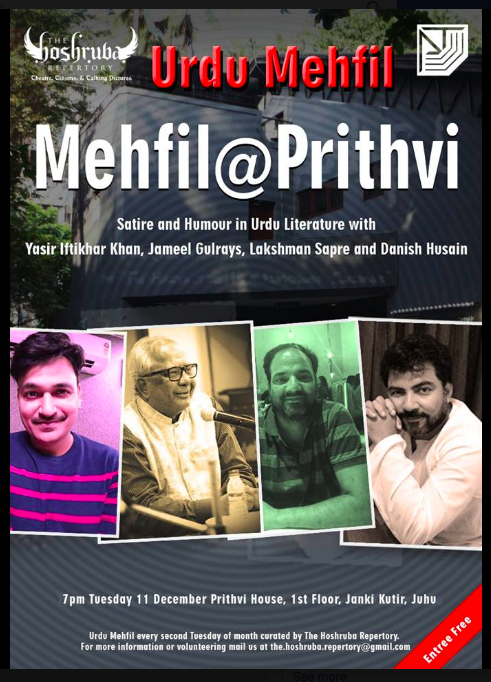
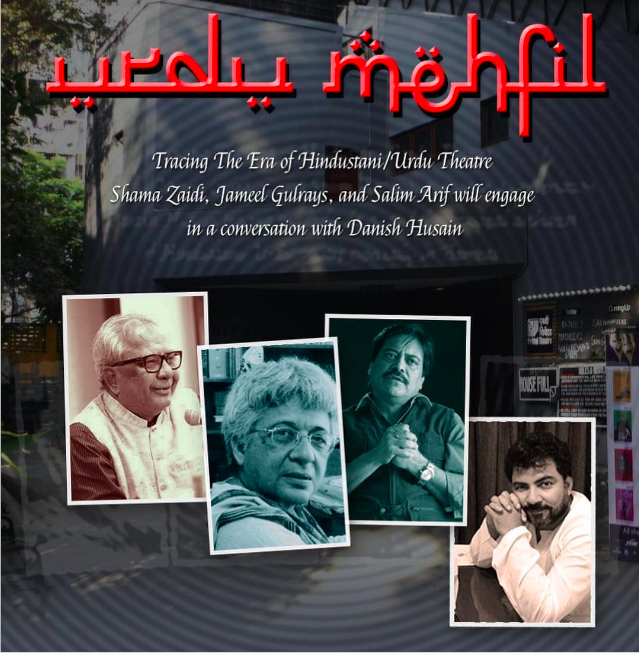
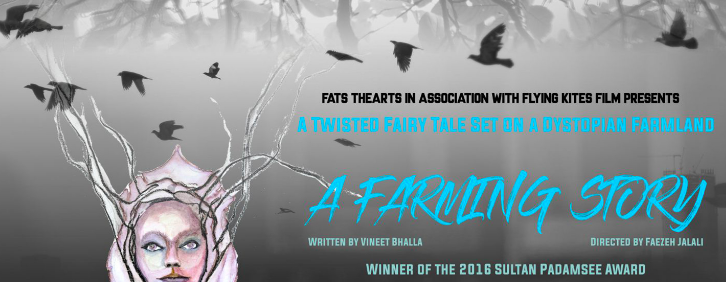
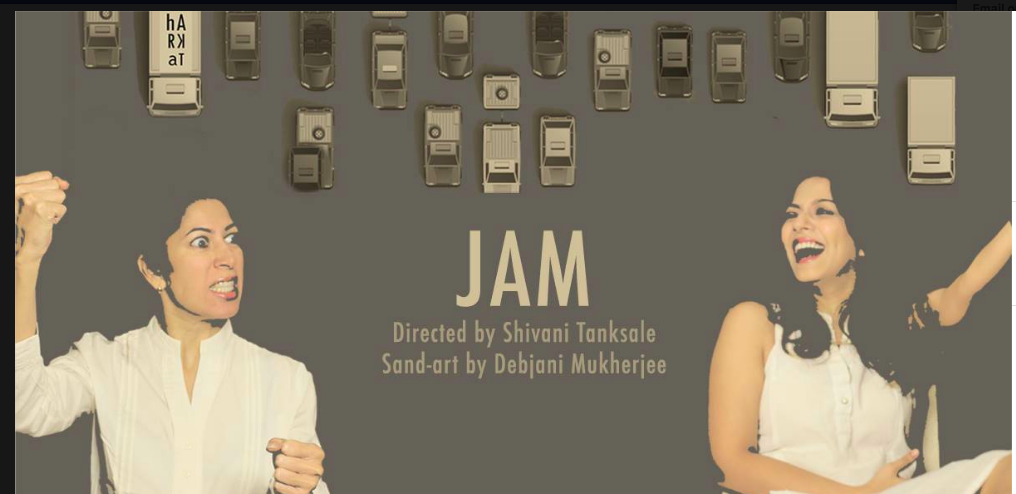
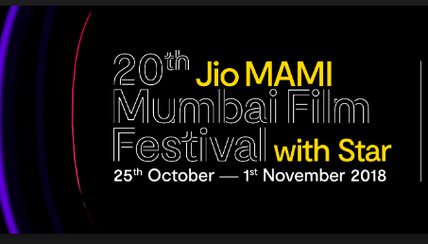
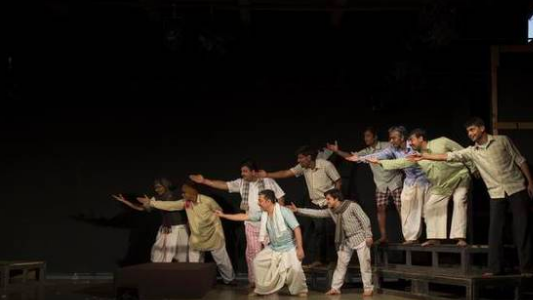
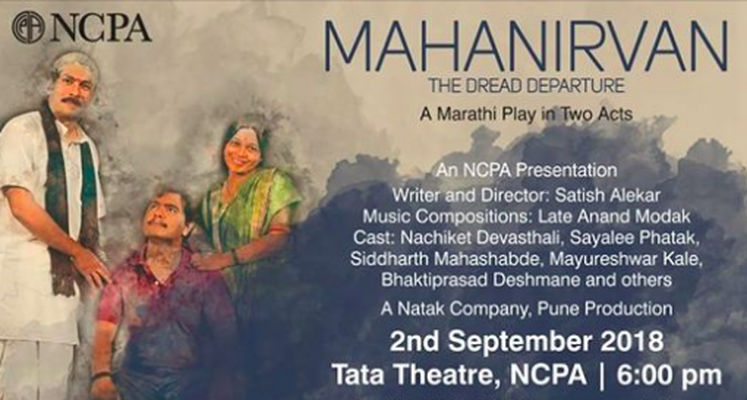
 RSS Feed
RSS Feed
